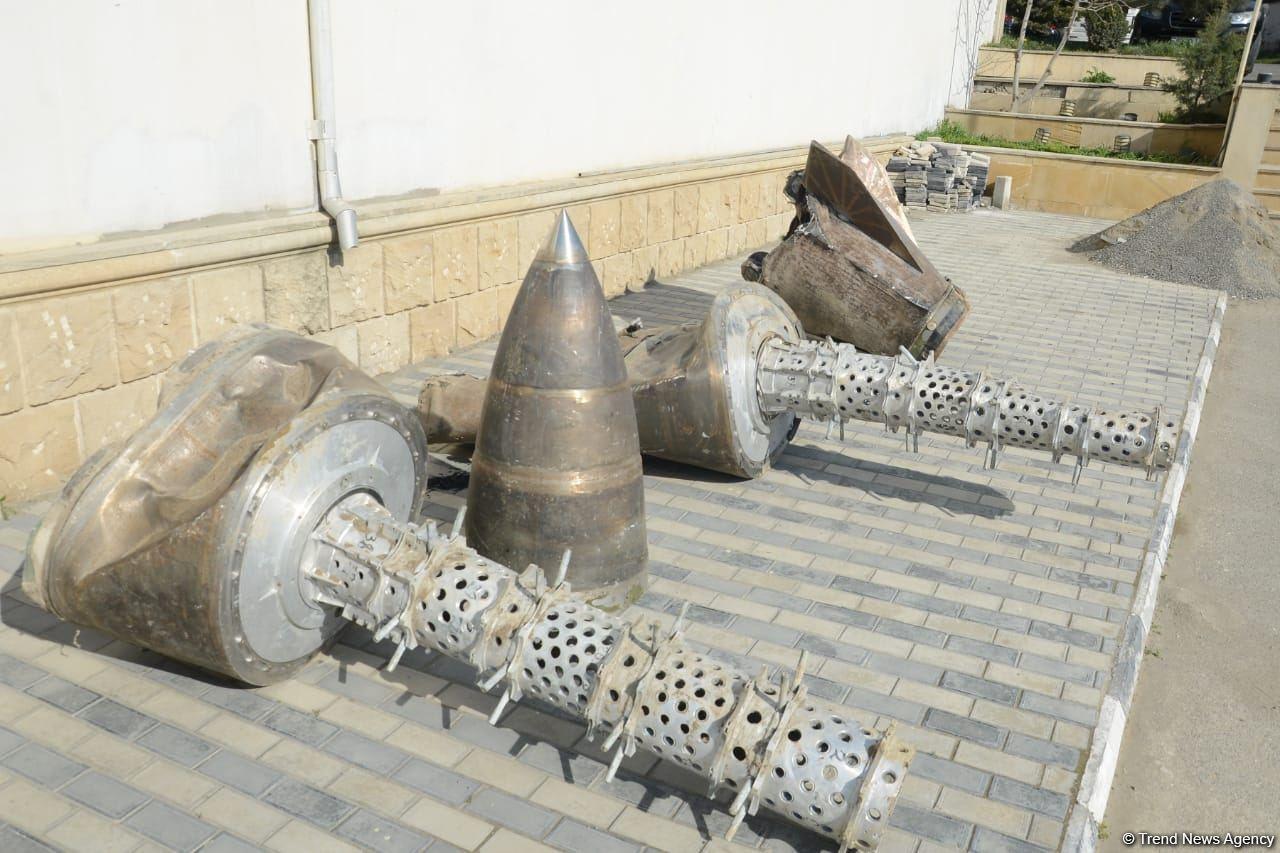Moscow: Azerbaijan, Russia in close talks over Iskander-M missile fragments found in Shusha

By Vafa Ismayilova
Russian presidential press secretary Dmitriy Peskov has said that the Russian and Azerbaijani military are conducting a close dialogue over the fragments of the Iskander-M missile systems found in Shusha by Azerbaijan's mine experts, TASS has reported.
He made the remarks in an interview with journalists in Moscow on April 13.
"The military conduct a close dialogue, during which all relevant issues are being discussed," Peskov said, asked if the Russian and Azerbaijani leaders focused on the issue in their phone conversation in April.
Earlier, Azerbaijani President Ilham Aliyev said that he discussed with his Russian counterpart Vladimir Putin on April 1 the information about the discovery of Iskander-M missile fragments in Shusha.
"I asked this question in a conversation with [Russian President] Vladimir Putin, which took place on April 1. The people of Azerbaijan should know the answer. About two weeks have passed," Aliyev said at the “New vision for South Caucasus: Post-conflict development and cooperation” conference held at ADA University in Baku on April 13.
He added that the Azerbaijani Defence Ministry addressed to Russian counterparts an official inquiry on the subject on April 4.
"We provided photos, videos and other materials, and asked the question: what kind of missiles are they, and what happened. Nine days have passed, but there is no answer," Aliyev said.
The Azerbaijani leader questioned how the Iskander-M missiles had appeared in Shusha.
"The Iskanders are here... How did they get to Shusha? Where were they launched from? Who launched them? We are waiting for answers," Aliyev stressed.
On April 2, Azerbaijan's Mine Action Agency demonstrated the found fragments of the Iskander missile systems that were used by Armenia against Azerbaijan during the hostilities in Nagorno-Karabakh in autumn 2020. On the same day, the Russian president's press secretary said that the Iskander missiles were not used during the escalation of the conflict in the region in 2020.
Representatives of the Azerbaijani public recently urged a thorough investigation into the firing of a missile from the Iskander-M operational-tactical system at Shusha city, which was liberated from Armenia's occupation on November 8, 2020.
The hostilities between Azerbaijan and Armenia resumed after that latter started firing at Azerbaijani civilians and military positions starting September 27, 2020. The war ended on November 10 with the signing of a trilateral peace deal by the Azerbaijani, Russian and Armenian leaders.
The peace agreement stipulated the return of Azerbaijan's Armenian-occupied Kalbajar, Aghdam and Lachin regions. Before the signing of the deal, the Azerbaijani army had liberated around 300 villages, settlements, city centres and historic Shusha city. The Azerbaijani army declared a victory against the Armenian troops. The signed agreement obliged Armenia to withdraw its troops from the Azerbaijani lands that it has occupied since the early 1990s.
--
Follow us on Twitter @AzerNewsAz
Here we are to serve you with news right now. It does not cost much, but worth your attention.
Choose to support open, independent, quality journalism and subscribe on a monthly basis.
By subscribing to our online newspaper, you can have full digital access to all news, analysis, and much more.
You can also follow AzerNEWS on Twitter @AzerNewsAz or Facebook @AzerNewsNewspaper
Thank you!
